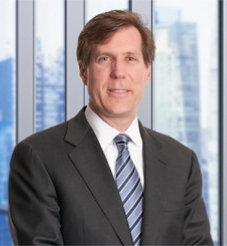 Mitch Petrick, outgoing managing director, CarlyleThe Carlyle Group’s head of hedge funds and credit Mitch Petrick will step down following billions in product outflows, the firm announced late Friday.
Mitch Petrick, outgoing managing director, CarlyleThe Carlyle Group’s head of hedge funds and credit Mitch Petrick will step down following billions in product outflows, the firm announced late Friday.
Petrick intends to start his own investment management company, according to Carlyle.
He oversaw the global market strategies division, which grew in aggregate since his 2010 arrival. But more recently, its profits and performance have moved in the opposite direction.
Investors pulled a net $3.7 billion from Carlyle hedge funds in the last reported year (ending March 31), with another $1.5 billion in redemptions outstanding.
Two of Carlyle’s largest hedge fund brands—Claren Road and Vermillion (now Carlyle Commodity Management)—lost the vast majority of their capital under Petrick’s tenure.
Credit-focused Claren Road dropped to $2.4 billion this March from $8.2 billion two years prior, according to firm regulatory filings.
Vermillion fared worse. The flagship fund reportedly dwindled to less than $50 million from the $2.2 billion in 2012, when Carlyle acquired it. Now rebranded, the commodities unit managed $1.1 billion as of March.
But global market strategies’ fee-earning assets have edged up under Petrick’s leadership, increasing 6% to $28.6 billion.
Firm co-chiefs William Conway and David Rubenstein praised the outgoing managing director for his “significant efforts” growing the division. “Carlyle intends to continue to invest in and build out the global market strategies platform.”
Petrick’s exit is part of a minor shakeup, shifting leadership of two divisions—credit/hedge funds and natural resources—to current executives.
Private equity Deputy CIO Kewson Lee will take over from Petrick as head of the $34 billion global market strategies division, Carlyle said.
Natural resources and energy have moved under President Glenn Youngkin’s mandate.
Related:Carlyle to Close Fund-of-Funds Arm & Hedge Fund Liquidations: Shakeout or Blip?
